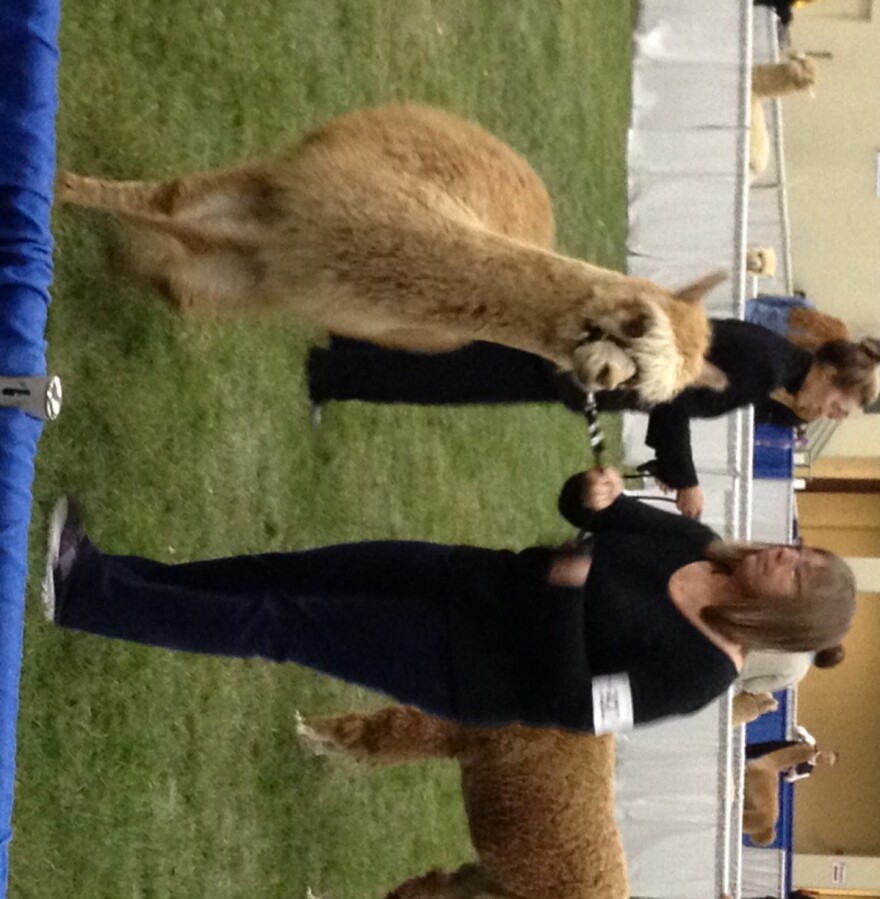Alpacas—the smaller, South American cousins of the llama—provide fleece for all kinds of knitted goods. The number of alpacas, and alpaca farms, has steadily grown since Americans began importing the animal for its fleece in the 1980s. North Carolina is part of this trend even though its climate is not ideal for alpacas.
The alpaca industry is big enough that this weekend Concord hosted the 8th Annual Carolina Alpaca Celebration, the convention for the region’s alpaca farmers and merchandisers.
Hundreds of the long-necked animals sat or lay in pens, sedately chewing hay. Others were walked to a contest, where judges inspected their frames.
“If you could bend that neck back across the animals back, it should be roughly two-thirds the length of the animals back,” professional alpaca judge Jill McLeod explained.
McLeod began raising the animals 20 years ago in Canada, and became a judge 15 years ago, by training in Peru and then through the U.S. association. She sifted her hand through the fleece of a 15-month-old male named Zen.
“We want as much fleece as possible packed on to the body of that animal, yielding a lot of fiber when he’s sheared,” she said.
About 4,000 alpacas live in North Carolina, according to numbers from the Alpaca Owners Association. That makes the state 20th in the nation, far behind the top state, Ohio, with 28,000. But convention organizer Tammy Limer calls it a fair number, considering the weather.

“The climate tends to be a little bit warm for them,” Limer says. “We don’t have as many as the farms in Ohio, but it’s growing. It’s growing every year.”
Mike Walsh got into the alpaca game four years ago. He runs a farm called Good Karma Ranch, in Iron Station northwest of Charlotte.
“It just sort of happened,” he says. “Started with a few and then it just exploded into too many.”
How many?
“36.”
Even with that many, it’s still not Walsh’s primary business, although he says he earns a profit.
An average shearing can produce five pounds of fleece. A pound of the best fleece can sell for as much as $50. It’s spun into a yarn, and used for clothing, accessories, and stuffed animals.
Alpacas and their products are a business. But the convention made clear they are also a lifestyle. Many of North Carolinas 100 alpaca farmers are part-timers, but came from across the state.
Others traveled from as far as the Midwest. They met to show their animals and their wares, but also to trade tips and mingle with other alpaca owners.

